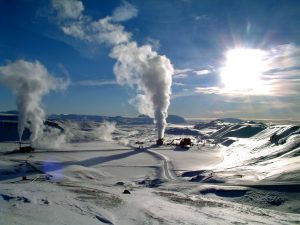
Solar Energy
Today, few people can be surprised by a solar panel or stories about tidal power plants. At the moment, attitudes towards alternative energies vary widely. It all depends on geographical and climatic conditions, the quality of service and operation, the amount invested and other factors. It is up to the individual to decide whether or not to use alternative energy sources.
The concept of the energy-efficient house has been popular in European countries such as Germany, Italy, Japan, USA, Spain, China, France, Czech Republic, Belgium and Australia for many years.
The advantages of solar energy
The advantages are:
- Renewability. Solar energy is a renewable energy source, unlike fossil fuels (non-renewable energy sources) such as coal, oil, gas, which according to the latest data can be regenerated, but at a very low rate, which in the future will not be enough to supply energy to the entire population of the planet.
- Inexhaustibility. Solar energy is inexhaustible, it cannot be generated in excess, and it will always be enough for absolutely everything the human race needs for many generations.
- Quantity of energy. The amount of energy from the sun that reaches the earth annually is about 1 billion terawatt-hours, while mankind produces about 20,000 terawatt-hours per year, which is 0.002% of the energy from the sun that reaches the earth.
- Silence. The silence of solar energy systems is achieved by the fact that there are no moving parts, such as large wind turbines with a rotor.
- Wide field of application. Solar energy is something that can be used for remote regions of any country where there is no centralised energy supply. It can be used as a heating element, as auxiliary equipment to increase fresh water production in remote communities in Egypt and, of course, it is one of the main sources of energy for the International Space Station (ISS) and satellites, since in space the power of solar radiation is much higher than on the Earth’s surface.
- Economy of operation. By using solar panels as an alternative energy source, building owners and households can make considerable savings. A decisive factor in the area of maintenance is that maintenance costs are very low. Solar panels only need to be cleaned a couple of times a year, and the manufacturer’s warranty is 10 years.
- Ubiquity. Solar energy reaches where the sun shines, i.e. absolutely everywhere on the planet, both at the equator and at northern latitudes, which makes it possible to produce solar energy everywhere.
- Ecology. Ecology, one of the major problems of the modern world. Mankind is fighting with all its might against the environmental problem, but the predominant use of non-renewable fuels causes a great deal of pollution, huge amounts of waste are deposited over vast areas, which already has a devastating effect on nature and human health. Solar energy, on the other hand, is the most environmentally friendly, as the installation of solar panels and all associated equipment releases virtually no pollutants into the environment.
- Advanced technology. Solar energy does not stand still. Every year there are new developments with better materials, and the efficiency of solar panels is increasing so that they take up less space and produce more energy. Modern advances in solar panel technology will increase efficiency by up to 50% in the near future.
Disadvantages
The disadvantages are as follows:
- High cost. This is a common reason for not buying solar panels, as they require a large investment at the beginning and people cannot afford them. But in many developing countries the government helps its citizens to buy and install solar power plants by giving them loans and helping them with the necessary paperwork.
- Pollution. As already mentioned, solar energy is the most environmentally friendly form of energy. However, in order to produce it, solar panels have to be manufactured, which emit greenhouse gases and chemical compounds that are dangerous for the environment and for humans.
- Low power per square metre. One of the most important parameters of electrical energy is the average power density per square metre (m2), which is measured in W/m2 and the amount of energy that can be obtained from a unit of surface area. In the case of solar energy, this parameter averages 170 W/m2, which is higher than for all renewable energy sources used, but compared to traditional energy sources (oil, coal, gas, nuclear) this indicator is much lower. This leads to an increase in the surface area of solar panels to produce 1 kW of energy.
- Interrupted cycle. The sun does not shine at night, and on cloudy days the amount of energy produced is significantly lower, which in many cases means that solar energy is not the main source of electricity. But even with these factors, solar energy is still much more stable than, for example, the equally common wind energy.
- Problems with energy storage. Batteries are needed in this industry to store energy and periodically smooth out the irregular energy flows from the solar panels. Their main disadvantage is price, as large capacity batteries are quite expensive and not everyone can afford them. Part of the solution to this problem is that peak charging occurs during daylight hours, where almost all the energy needed is produced by the solar panels.
- Elements used. A solar panel requires rare earth materials, which increases its cost and makes it very difficult to manufacture and dispose of. As a result, the price of solar panels increases considerably.
You may also like:

